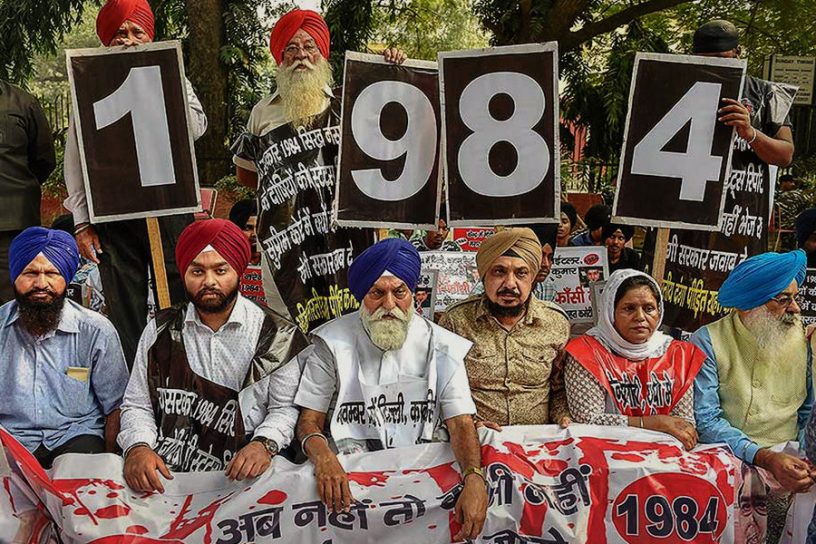
Recording memories of the trauma of 1984, ethnographic research, witnessing, documenting, and archiving can be a powerful way to challenge dominant and singular narratives that erase the voices of survivors.
Author
Reeju Ray, Associate Professor, Jindal School of Journalism & Communication, O.P. Jindal Global University, Sonipat, Haryana, India.
Summary
In this essay, Jaspreet Singh’s novel Helium is read as a historical text alongside government reports of the pogroms, media reports of the event, and oral ethnographies of survivors of 1984. Helium offers an understanding of how the memory archive challenges continued impunity of perpetrators of state violence.
Impunity is embedded in the state’s judicial processes, in a lack of public accountability, in forgetting, and in repetition. The survivors present a profound challenge to impunity by their refusal to accept the logic of badla or revenge.
Published in: Sikh Formations
To read the full article, please click here.


